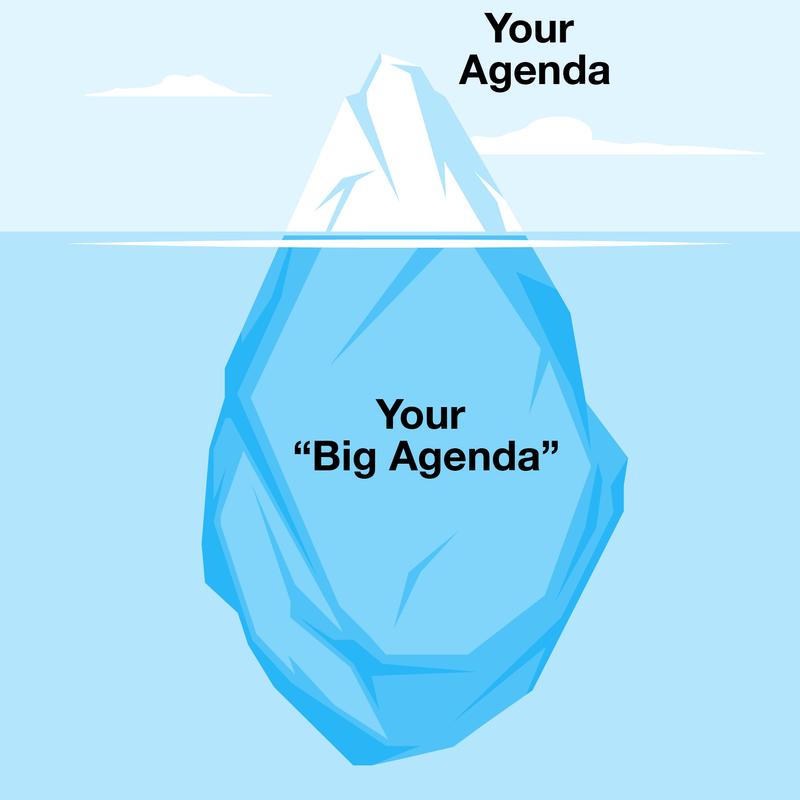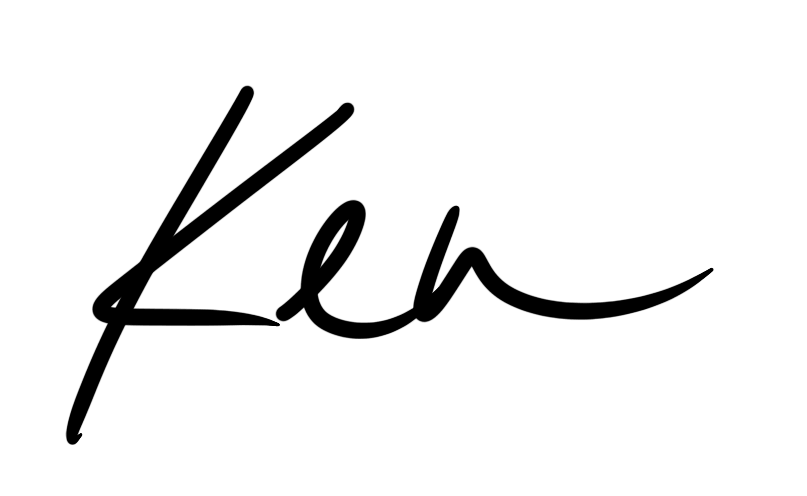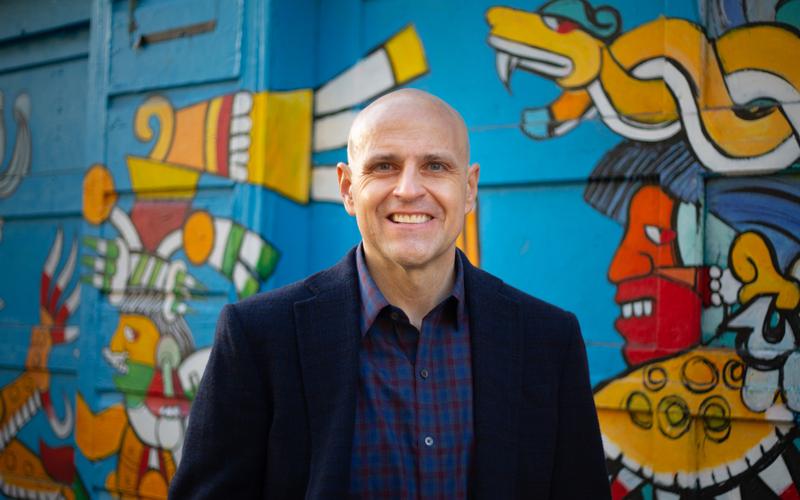

What is Coaching?
By Ken Norton
For the TL;DR — jump to the bottom of this page and learn who tends to be a good fit for my style of coaching, and who is typically not a good fit.
Executive coaching is distinct from advising, consulting, training, or mentoring. The differences can be subtle and further complicated because many people who call themselves coaches actually provide one or more of these other services. It’s no surprise that many people who contact me are unfamiliar with coaching – unless you’re a Fortune 500 CEO, few of us have encountered it in our professional lives.
People new to executive coaching often expect to bring questions and hope that their coach will have the answers. They are surprised to discover that coaching is precisely the opposite – coaches ask the questions, and clients provide the answers. But here’s the good news: when exposed to coaching, most people recognize how much more powerful it can be than advising, consulting, or mentoring and open up to it quickly. Like an innovative product, people don’t know to ask for coaching because they don’t know it exists. That’s my responsibility – to make sure potential clients understand what executive coaching is all about before they hire me. I wrote this article if you’re new to executive coaching to make it easier to understand the differences and make sure it’s what you’re genuinely seeking before you hire a coach.
To frame the discussion, let’s start by describing what coaching is not:
Coaching isn’t advising.
A best friend or family member has opinions and an agenda, while a coach has a process. When you talk to your friends and family about something you’re struggling with, they will likely have their own opinions and judgments about the situation. Even if they have your best interest at heart, any advice your friend offers will be rooted in what they think is best for you. The coaching relationship is truly a collaborative effort based solely on what the client wants. Coaches are professionally trained to be completely objective and non-judgmental. They’re not attached to any outcome or decision their clients make, and they’re able to provide guidance and tools that help their clients implement solutions so they can get one step closer to living their best life.
Coaching isn’t consulting.
Consultants focus on situations, while coaches focus on people. In other words, “expert” consultants are hired to help clients define their problems, formulate solutions, and sometimes even implement those solutions (often using their personal experience as a model for success). A coach, on the other hand, views clients as the “experts” in their own lives and businesses. Instead of telling a client what to do, a coach facilitates the client’s discovery of their own answers.
Coaching isn’t mentoring.
A mentor says, “Follow me,” while a coach reveals where the client is standing on the map and asks, “Where shall we go next?” Mentoring can mean serving as a wise role model and is usually about helping the mentee emulate the mentor’s own decisions and style. Coaching techniques, however, are designed to help individuals find their own way and discover their own strengths, skills, and blind spots. Coaching does not assume that everyone will be equally successful following the same path. And while a coach can have valuable experience and insight in the client’s field, their real value lies in helping people draw on their own experience and wisdom as they move ahead.
Coaching isn’t therapy.
Coaching and therapy share a lot in common, especially when it comes to feelings. Generally speaking, coaching focuses on visioning, success, the present, and moving into the future. Therapy emphasizes psychopathology, emotions, and the past to understand the present. As an analogy, a coach is like an athletic trainer, while a therapist is like a medical doctor specializing in sports medicine. The trainer assumes that the athlete is essentially sound in body and is focused on improving fitness and performance. The trainer will refer the athlete to the team doctor if there is reason to believe they have an injury. Similarly, coaches and therapists work with the same material but with different skill sets and to different ends. A coach may explore the past, family life, or emotions of their client in the service of understanding the stories being told about the present and future.
Coaching isn’t training.
Training is curriculum focused, while coaching is client focused. Training is an effective approach when specific skills or objectives must be mastered. A trainer/instructor establishes and presents the curriculum, meets set objectives, administers the same material to each person, and even conducts testing to determine whether students successfully acquired an understanding of the subject. Coaching, though, is about guiding individuals or groups as they set and reach their own objectives. Unlike training, there is no clear path or set curriculum; it is less linear and more organic.
Sources: Why Giving Advice Rarely Works and the ICF Referring a Client to Therapy guidelines
So what is it?

To understand coaching, let’s use a metaphor. The client has an agenda. It’s what they want to accomplish or learn about themselves. They’re at “Point A” and want to get to “Point B.” Point B the summit of a mountain they want to climb. This could be something like, “I want to be a better product leader,” “I want more balance in my life,” or “I want to figure out how to be successful in this new role.” The agenda guides the relationship going forward, and it’s how the client will measure success.
Over here is my own agenda. It’s drawn from my experience and what’s important to me. It’s shaped by my lessons, what worked for me, what didn’t, what I want, and the environments I’ve been exposed to. If I were to give you advice, I bring these two agendas together. Advising is when the advice-giver points the client toward their own agenda. “Here’s what I would do.”

Advice, even from someone accomplished, can be problematic (see Sidebar: Why advice often sucks below). Advice is situational – what worked for me might not work for you. You might nod your head but then choose to ignore it. Or you might follow it, and it could be wrong! Advice is prone to hindsight, survivorship, and confirmation biases. My advice might have been precisely the wrong thing to do, and I just got lucky. Or maybe I only think it worked for me, and it played no role in success – you can’t run independent A/B tests on life unless you enter the multiverse. Advice tends to be more for the advice-giver’s benefit than for the advice-receiver’s. Advice-givers get to feel helpful, and smart. Finally, advice isn’t always welcome. We all know how frustrating it can be to share an experience or situation and have the listener immediately jump to, “Here’s what you should do…”
I describe advice as a bit like cotton candy. It’s a sweet, enjoyable treat. Everyone is a little bit happier after some cotton candy. But it doesn’t contain any nutrition, and an hour or so later after the sugar high wears off, you’re right back where you started: hungry (with maybe a bit of a tummy ache).
Sidebar: Why advice often sucks.
In encouraging us to resist our inner “Advice Monsters,” author and coach Michael Bungay Stanier offers up several reasons why advice often doesn’t work:
- We’re solving the wrong problem because we usually don’t have the full picture
- We’re proposing a mediocre solution, typically biased by the first idea that comes to mind
- We’re over-inclined to believe our own ideas are excellent, and this sense of self-importance is boosted by the receiving party’s appeal to our expertise
- Our advice demotivates the advice-receiver because it diminishes their sense of autonomy, mastery, and purpose
- Our advice overwhelms the advice-receiver by “flooding the zone” with unnecessary cognitive work
- Our advice compromises the advice-receiver’s effectiveness and makes them less likely to find and focus on the real challenge themselves
- Our advice limits change by dulling the advice-receiver’s sense of agility and ambition
And bottom line: advice is, consciously or unconsciously, a hero move that reinforces a belief that the advice-receiver is helpless and in need of saving from someone better.
“When you get advice from people who have more experience than you, the advice they’re giving you is not based on your life or your experience. It’s based on their life, and their experience. The stories they’re telling are based on experiences they’ve had. So maybe they’re giving you good advice. But maybe they’re giving you good advice for them, and not giving good advice for you.” — Rick Rubin
Sources: The Advice Trap by Michael Bungay Stanier and Why Advice is Overrated with Rick Rubin
But there’s a more profound reason why advice is so limited. And that’s because lurking below the client’s agenda is what coaches call the client’s “Big Agenda.”

The Big Agenda lives at the core of every human being and is exemplified by:
- The desire to live life in alignment with what truly matters to one’s most authentic self.
- The desire to live a life of conscious choice.
- The desire to be fully present to the experience of one’s life, moment by moment.
The Big Agenda is in alignment with what truly matters. It’s aligned with your values, conscious choice, and being fully present in each moment. Like a North Star for our life, it guides each of us in the direction of living a life we want and being who we want to be.
Now we see why advice, especially from someone who doesn’t know us as a whole person, is so bad – it’s barely scratching the surface! The complete agenda isn’t just the mountaintop we want to reach; it’s merely the visible part of an iceberg. The client contains multitudes hiding below. Advice takes away the client’s agency and power over their own life because it neglects or ignores the whole person.
Coaching is all about restoring that power, teaming up with the client to help them connect their agenda to their Big Agenda under the surface. In the words of my credentialing body, the International Coaching Federation, coaching is “partnering with clients in a thought-provoking and creative process that inspires them to maximize their personal and professional potential.”
Coaches believe their clients are naturally resourceful, creative, and whole. Coaching emerged from the humanistic psychology tradition and the client-focused therapeutic work that followed. Coaches believe that people don’t need fixing or steering. They have the power and simply need a co-equal partner to stand alongside them. My agenda doesn’t enter the picture as a coach – I’m trained to be completely objective and non-judgmental. When I’m coaching, I hold my client’s agenda entirely. Like Ted Lasso says, coaches have learned to “Be curious, not judgmental.”
We’ve spent most of our lives immersed in other people’s opinions, expectations, and beliefs. We’ve been playing by their rules, looking to them for approval, and seeking the answers out there. Most of us aren’t really in tune with our Big Agendas, which is why coaching is so powerful. We sometimes know when there’s dissonance but aren’t connected to the underlying values that might be the source of that dissonance. We know when we’re feeling stuck but don’t always know why. We suffer the endless chatter of judgmental inner parts that all seem to want something different. We know that we’re longing for something but can’t always figure out what it is or how to get there. We know we want to get better, but we don’t usually know what “better” means or what to do next. That’s what executive coaches are here to help with! The coach brings tools and techniques to make this process fruitful. Coaching is a creative process to work with clients to evoke transformation.
With my clients, that’s a journey toward understanding their values, their vision for the type of life they want to lead, the perspective they’re taking, how they make decisions, how they confront their inner critics, how they tap into a deeper source of wisdom and self-compassion, and how they commit to their choices. It’s a combination of inner work and outer work. Only by connecting to the Big Agenda can the client live the life and career that is most meaningful and authentic to them. Through that, the client often discovers that their original goal that seemed so obvious, their “Point B,” isn’t really big enough or meaningful enough or where they even want to go. There’s a destination even more resonant out there, call it “Point C,” that only emerged from the fog through coaching. That’s what coaching is all about.
What does this have to do with product management or product leadership?!
At this point, you might be asking what, if anything, this has to do with product management and product leadership. If a coach doesn’t have an agenda, why not work with any old executive coach? If I’m not a “product coach” who’s going to teach you product leadership or give PM advice, wouldn’t a random coach be just as helpful? In truth, I’ve been trained to coach any person on any topic, as have all ICF-credentialed coaches. So you don’t need a coach with domain experience to help you get results. I’ve chosen to focus on product leaders and product-minded founders because that’s where my passion resides. You’re my tribe.
And because product leadership is really, really hard. We are generalists surrounded by experts. We are given responsibility without authority. There is no playbook to guide us. This lonely job triggers our inner critics on a daily basis. Yet, it can be some of the most rewarding work you’ll ever do. I love the craft of product management, and I love helping people achieve their dreams and grow as product leaders. I’m not a product coach; I’m a coach of people. And those people just happen to be product leaders.
Because I’ve been there and done the job, my clients and I have a shared vocabulary. You don’t need to explain the nuances of the job. I get it. You won’t need to hold back on the buzzwords or terminology. My decades of PM experience often help guide me to the right question as a coach. My familiarity with the content helps me reveal the context. I’ve been there, I’ve struggled with some of the same challenges, and I’ve seen the patterns that emerge from working with scores of executive coaching clients. I’ve helped people like you grow and get results. And all of that experience has made me a better coach to other product leaders. There are also occasional moments to bring stories from my personal experience and bits of mentorship to my clients. But I must ensure these “mentorship moments” always follow the coaching.
What has been most humbling about coaching is how often my questions proved to be more powerful than my answers might have been were I wearing an advisor or consultant hat. Curiosity is so much more important than being right. Learning that my instincts around what to do were often flawed, or at least limited, helped me fully embrace coaching. I am reminded of this every day when I witness my clients take control of their own lives and careers in a way that is authentic to who they are. Advice is about the situation the client is facing. It’s about your agenda, not mine. Coaching is about the whole person.
TL;DR
Leaders who tend to be a good fit for my coaching…
- Recognize that “what got me here, isn’t going to get me there.”
- Are open to being curious, taking responsibility, feeling their feelings, being wrong, and exploring new perspectives.
- See leadership as more than a means to an end but as being in service of a deeper calling or purpose.
- Are willing to be honest, emotionally vulnerable, self-aware, and daring.
- Understand that growth requires a values-driven whole-person perspective and are keen to examine all parts of life, not just their job.
- Are open to exploring the inner work as much as the outer work.
- Are willing to be playful and find the humor and joy in leadership.
- See the potential in leading more from a place of purpose and presence than from a place of fear and reactivity.
- View coaching as an investment in their long-term growth and development as a leader and as a human being.
- Are capable of prioritizing themselves and putting in the effort to learn and grow, especially in the face of discomfort.
Indications that someone may not be a good fit for my coaching — in some of these cases, advising, mentorship, training, or consulting might be more appropriate:
- Seeking tactical advice or hands-on feedback on their product, roadmap, customer discovery strategy, hiring methodology, metrics, or development process.
- Looking outside themselves to have someone diagnose what they are doing “wrong” or to be told the “right” way to lead.
- Hoping to “learn the ropes” of product management or product leadership.
- Viewing coaching as transactional and are hoping to leverage it for a quick fix: a promotion, a job offer, a magical framework, or an instant “unlock.”
- Seeing leadership primarily as a vehicle for achieving external outcomes such as money, influence, power, etc.
- Believing leadership is a serious zero-sum battle of winners and losers, with obstacles or impediments to be overcome or defeated.
- Focused more on changing or “fixing” the behavior of those around them.
- Desires for someone to engage directly with their boss, peers, direct reports, or several members of a leadership team in a group setting.
- Coming to coaching reluctantly or primarily to satisfy someone else’s expectations.
If this makes sense to you, learn more about my executive coaching or get started.

Working with Ken has changed the way I approach not only my job, but my personal relationships. When I was promoted to VP, I experienced a bit of an existential crisis. I questioned my abilities and whether I deserved to be in that role. Ken’s helped me build confidence, recognize my unique strengths, and internalize that I deserve my job. He’s able to push me, and also be in my corner.
Ken’s never going to get rid of me as a client. Working with him has been transformational. I’m finally clear about my goals and values, more satisfied in my role, and more present in my life.
I love having Ken in my corner rooting for me. He’s like my professional big brother or uncle. I reached out to him because my new role as the most senior product leader in the company was pressure-testing me in a way I've never encountered before. It felt lonely and I knew I needed to become a better version of myself. These days, I actually look forward to the emotional ups and downs I experience in my role, because I know I’m going to generate a meaningful insight working through that emotion with Ken.
Ken’s coaching improves the quality of the decisions I make. He has a deep understanding of how product-minded individuals think, which was crucial for me. It’s like working with an incredible Zen product leader who knows how to ask the right questions to get me to the right answers. He’s helped me gain clarity and confidence in taking action instead of feeling paralyzed by choices.
I was growing in my product leadership career but was running into challenges scaling. I needed someone who had ‘been there and done that’ who could help me work on me. After partnering with Ken, I’m better at seeing around corners and getting in touch with the root of any issue. I am able to articulate who I am as a leader and what it means to show up and lead authentically.
I have so much gratitude and admiration for Ken. It‘s a gift to have regular conversations that provoke thought and bring what‘s most important into focus. Our work together has been deeply centering and energizing for me. I always leave our sessions with a renewed sense of my own path as a leader.
